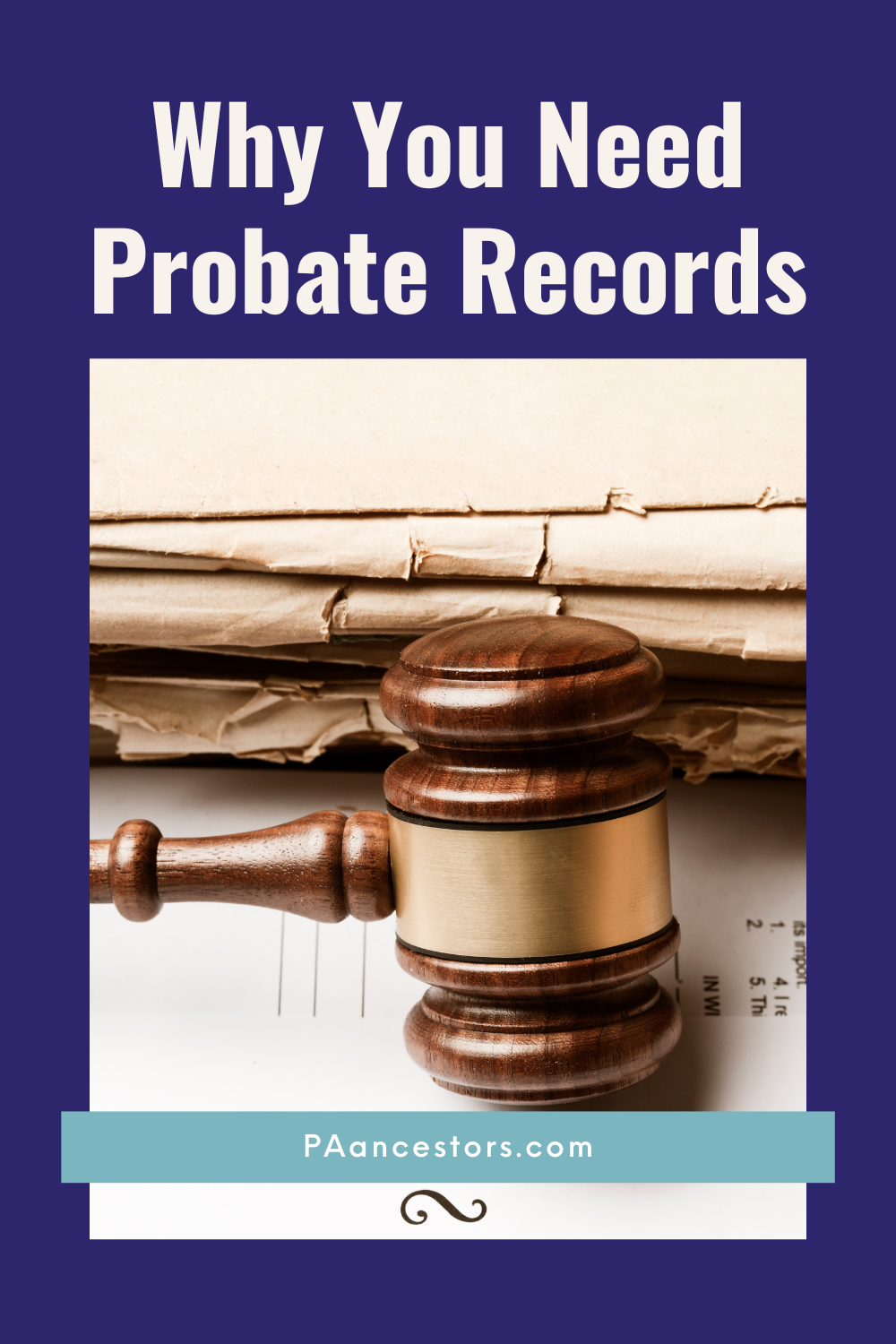What is Probate and Why It Matters for Genealogy Research in Pennsylvania
For genealogists tracing their roots in Pennsylvania, probate records are an essential resource. They offer unique ways to view ancestors' lives, relationships, and the legacies they left behind.

Genealogists often search for probate, also called estate, records, especially when researching in the 18th and 19th centuries. Understanding probate and its significance can unlock new avenues in genealogy research and provide connections for piecing together family trees.
Where is Probate Conducted in Pennsylvania?
In Pennsylvania, the probate of estates is managed at the county level, specifically through either the Register of Wills or the Orphan’s Court, depending on the time period and if the person had a will written.
Today the Register of Wills is the first stop for probating wills, issuing letters of administration, and overseeing the collection of state inheritance taxes. This office oversees the legal distribution of an individual's assets after death. It can also conduct hearings to appoint executors or administrators for estates, ensuring the deceased's wishes are honored and disputes are settled fairly.
The Orphans' Court in present day, while it shares some responsibilities with the Register of Wills, such as handling letters of administration, has a broader scope. It is the custodian of records for adoptions, guardianships, and estate disputes, and also issues marriage licenses. Its jurisdiction extends to issues like forgery, mental capacity, and undue influence, with the option for people involved to appeal decisions.

Both entities serve distinct yet complementary roles in managing the probate process. Both are goldmine for genealogists seeking to understand the final affairs of ancestors.
See my article on the history of probate law to learn more about how the Register of Wills and Orphan’s Court handled estates and intestates from 1682 until today.
Why Probate Records are Gold for Genealogists
Probate records hold essential relationship information for genealogists. They provide not only the names of the deceased and his or her heirs, but often detail the relationships between these individuals. This can be crucial in confirming family links that are not documented elsewhere.
Additionally, probate records can offer a glimpse into the personal lives and financial status of ancestors. From the list of assets, genealogists can infer the lifestyle, wealth, and even personal interests. For those researching Pennsylvania ancestors, these records are particularly valuable given the state's long history and the potential for early American ties.

Probate Records Add Depth to Your Family History
Beyond confirming relationships and providing economic insights, probate records can help genealogists construct a more nuanced picture of their ancestors' lives. For instance, the details of a will can reflect the deceased's priorities and values, such as charitable donations, provisions for the care of minors or dependents, and special bequests to individuals or organizations that hint at personal stories or relationships.
Tips for Accessing Probate Records in Pennsylvania
- Know the County: Since probate is conducted at the county level, identifying where your ancestor lived is the first step. Pennsylvania's county boundaries have changed over time, so it's important to research historical boundaries to ensure you're looking in the right place.
- Utilize County Resources: Many Pennsylvania counties have microfilmed and/or digitized their probate records, but few of these are accessible online in their entirety. Ask the county Register of Wills where their historical probate files are and how to access them.
- Visit Courthouses: For records not available online, a visit to the county courthouse can be rewarding. The staff in the Register of Wills and Orphan's Court can guide you to the records you need, though it's wise to call ahead for information on access, hours, and any fees. If you can not visit in person, records can be copied and sent to you for a small fee.
- Explore Surrounding Documentation: While wills and letters of administration are the most sought-after documents, don't overlook related records such as inventories, account settlements, and guardianship files. These can provide additional context and details about your ancestors' lives.
For genealogists tracing their roots in Pennsylvania, probate records are an essential resource. They offer a unique lens through which to view ancestors' lives, relationships, and the legacies they left behind. By understanding the probate process and where to find these records, you can solve long-standing brick walls in your family history research and go deeper into the lives of your ancestors.
© 2019–2024 PA Ancestors L.L.C. and Denys Allen. All Rights Reserved.
